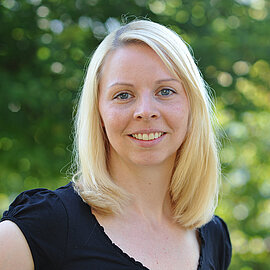Russia, Ukraine and Kazakhstan (RUK) are among the world’s major wheat exporters. Their agricultural output can make a considerable contribution to domestic economic development and global food security. The RUK countries, however, will only be able to fully exploit the potential for increasing yields with adequate access to finance in the agricultural sector. An agricultural-policy expert panel at the Global Forum for Food and Agriculture (GFFA) on 18 January 2013 provided a platform for high-profile participants from politics, academia and business to discuss funding options for various farming structures in Eastern European and Central Asian countries. The symposium titled 'From Micro-credit to Shareholder Value: Access to finance in the agricultural sector in Eastern Europe and Central Asia’ was jointly organized by IAMO and the Committee on Eastern European Economic Relations (OA).
The expert panel was opened by the Chairman of the Agribusiness Working Group of the Committee on Eastern European Economic Relations, Dr. Thomas Kirchberg. In his welcoming address he emphasized the significance of agricultural investments as key to safeguarding farm production and development in rural areas. Dr. Robert Kloos, State Secretary, Federal Ministry of Food, Agriculture and Consumer Protection (BMELV), in his greeting pointed out that the aspired close collaboration of politics, business and academia can establish important preconditions for agricultural investments and thus enhanced agricultural development.
Moderator Dr. Martin Petrick, Deputy Head of Department Agricultural Policy, Leibniz Institute of Agricultural Development in Central and Eastern Europe (IAMO), introduced thfileadmin/veranstaltungen/gruenewoche/Production_in_Farm_Categories_in_RUK.jpgfileadmin/veranstaltungen/gruenewoche/Production_in_Farm_Categories_in_RUK.jpgparing prevailing forms of farming businesses in the countries under review. The scholar used analyses made by IAMO to illustrate that there is still a heterogeneous agricultural structure in the Eastern European and Central Asian successor state of Soviet Union. Individual farms are still under-represented in Russia and Ukraine while such businesses make a considerable contribution to agricultural production in Kazakhstan and other Central Asian countries. Household plots make up the highest percentage in agricultural production in many countries in the region. In Ukraine, e.g., the value of rural household production was still over 50 per cent in 2009. This indicates their high land productivity while upstream service are often bought in from neighboring agricultural enterprises.
During the panel discussion, the attending vice ministers of agriculture underlined the strategic significance of the agricultural sector in Russia, Ukraine and Kazakhstan. Notably Deputy Minister of Agriculture of the Russian Federation, Aleksandr Petrikov, and Deputy Minister of Agriculture of the Republic of Kazakhstan, Gulmira Issayeva, explained that their countries are providing considerable amounts of investments aids. In addition, Russia, Ukraine and Kazakhstan are making efforts towards improving the credit infrastructure for agricultural producers in their countries. Besides extension of the government-controlled network of credit banks, Ukrainian Deputy Minister of Agricultural Policy, Oleksandr Sen, underlined the increasing importance of forward contracts. It was also explained that government credit guarantees will play a larger role in Ukraine and Kazakhstan in the future.
Invited representatives of the business community included Dr. Heinz Strubenhoff, Agribusiness Program Manager, International Finance Corporation (IFC), and Dirk Stratmann, Ukraine Spokesman of the Agribusiness Working Group, Committee on Eastern European Economic Relations (OA). The discussion examined how governmentally administered credit supply is handled in RUK countries. It was found that typically there is no transparent evaluation of such schemes. Strubenhoff explained that local bank staff is often not sufficiently familiar with the agricultural sector to appropriately grant credits. In addition, there is a lack of suitable IT solutions, benchmarking and efforts to reduce transaction costs. The expert added that changes are required both in terms of agronomic knowledge and rights of banks regarding their scope of action and collateralization in order to improve the investment climate and thus conditions for small- and medium-sized farm operations. Stratmann conceded that agricultural producers in RUK countries with acreages above 5,000 hectares had a variety of development options while there was a lack of technological solutions for smaller producers. ‘Access to finance schemes very much depends on the size of agricultural enterprises. There is by no means a basic credit crunch in agriculture but small producers still have problems to access credits’, said Stratmann.
The expert panel continued with a controversial discussion of development opportunities in agrarian economy. Participating experts believed that only a small fraction of household producers have the potential for commercialization. Modernization and stabilization of the farming sector is a central objective which, however, should include all existing forms of farm operations. Suitable development strategies are necessary in order to permit also smaller agricultural businesses access to finance. The underlying reason is that only capital input into improved technical equipment and training of skilled specialists will enable efficiency improvement and thus further development in agricultural production.
Text: 5,693 characters (with spaces)
Media contact of Committee on Eastern European Economic Relations
Andreas Metz
Phone +49 (0)30 2028-1441
E-mail: a.metz(at)bdi.eu
www.ost-ausschuss.de

